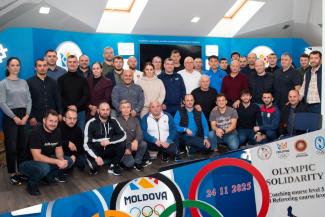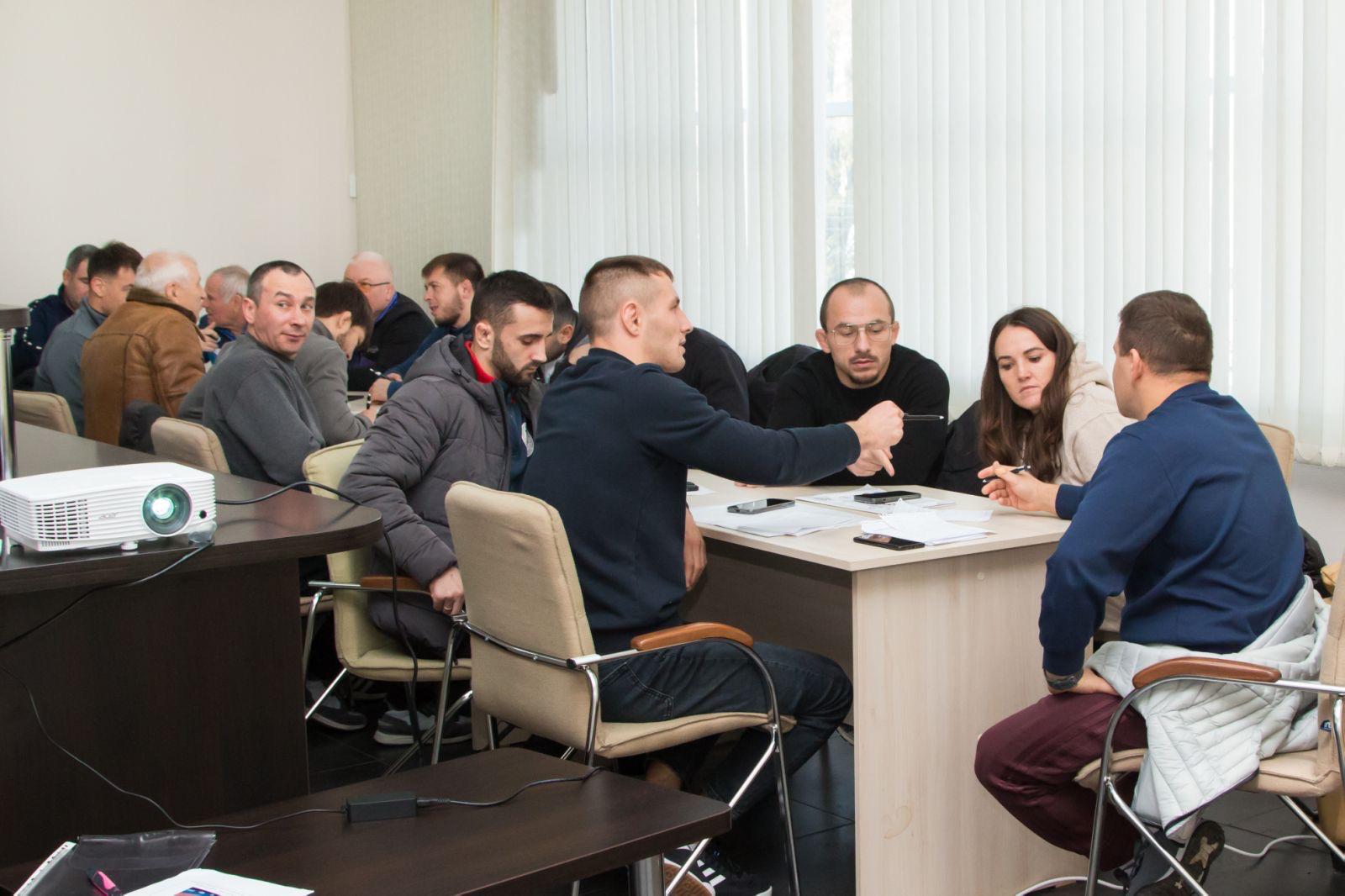Uruguay hosts pair of Coaches Courses, Introduction to Refereeing
Thursday, November 17, 2022 - 17:23 By United World Wrestling Press

MONTEVIDEO, Uruguay (November 11) --- Keeping with the series of UWW courses that are taking place in the American continent, on this occasion was the time of Montevideo from November 1 to 7. The courses were: Coaches Course Level 1 and Level 2 and Introduction to Refereeing. A total of 31 participants took part in the course. The majority of the coaches were from Uruguay, but there also were participants from six other countries.
This course is part of the UWW's education program, and the purpose is to provide the coaches with tools to strengthen their professional work. The course consisted of several sessions between theoretical and practical, structured in such a way that what was learned in the classroom was applied on the mat.
This course was made with the support of the Olympic Solidarity, the Uruguayan Olympic Committee, and the Uruguayan Wrestling Federation.
 Participants from the Uruguay courses gather for a photo. (Photo: United World Wrestling)
Participants from the Uruguay courses gather for a photo. (Photo: United World Wrestling)
All the activities were held in the brand-new Combat Sports Training Center, founded in 2019, with two mats and a classroom that makes it easy to take the course.
The opening ceremony was held on November 2 and was attended by distinguished personalities such as the President of the National Olympic Committee, Julio C. MAGLIONE, the National Secretary of Sports, Sebastián BAUZÁ and the President of the Uruguay Wrestling Federation, Dante STEFANO.
We had the educators Pedro ROJAS (PUR) for the coaches and Ignacio D'Alessandro (ARG) for the referees.
"We are very pleased with the outcome of the course. We found a group of participants with a basic level of knowledge of the sport but who were willing to learn and make the most of the concepts and tools provided. We had five days of very fruitful work, and we went back home knowing that we had left the bases for Uruguay to start implementing a successful development program. We want to come back in a while to help them take it to the next level". say Ignacio D’Alessandro, Referee Educator.
The Uruguayan Wrestling Federation is starting to work very hard in the development of the sport in its country. And from the UWW, we hope to continue working in this way with them and accompany them in their growth and institutional strengthening.



Share your thoughts.
Comments